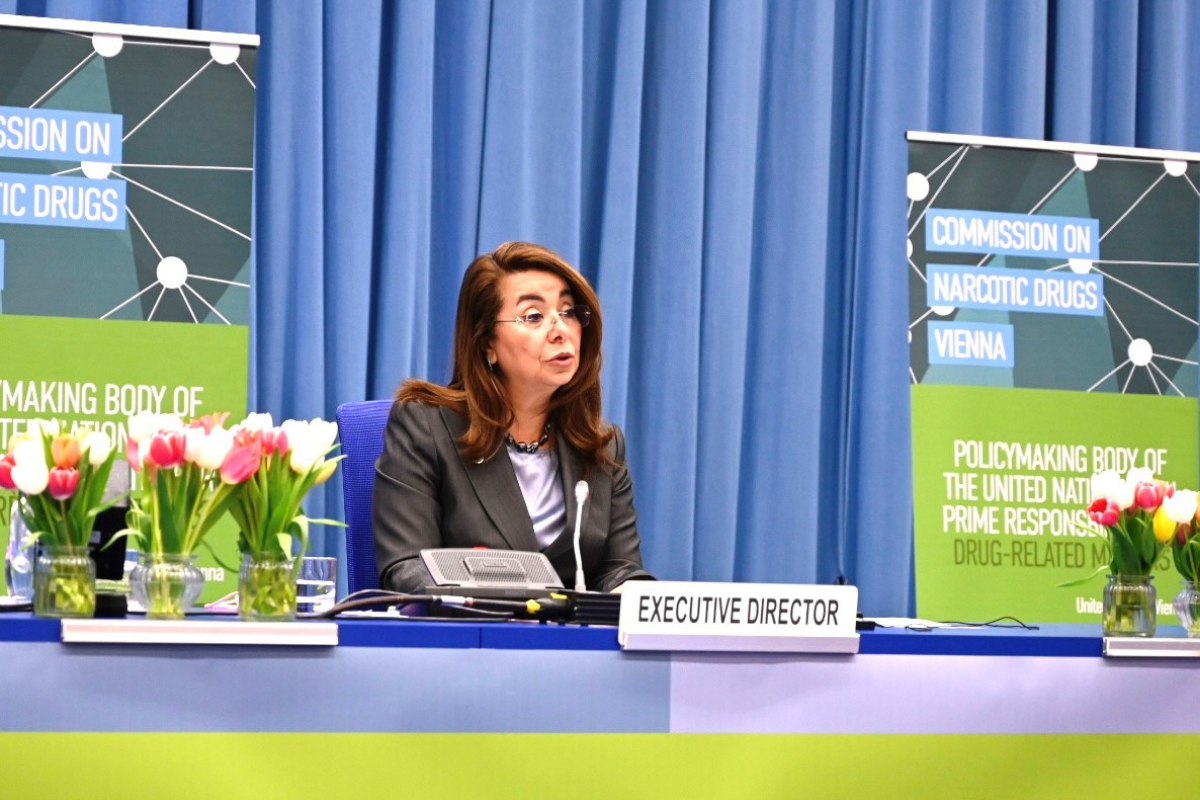
Vienna (Austria), 13 April 2021 — The 64th session of the Commission on Narcotic Drugs (CND) continued today, fostering solidarity, shared responsibility and international cooperation to improve health coverage, protect societies and recover better from the COVID-19 pandemic.
Twenty-nine side events took place on the second day of the 64th session of the CND, highlighting the search for joint solutions in matters of drug control policy formulation and addressing the COVID-19 pandemic. The broad range of events covered topics such as cybersecurity, data, alternative development, health and international cooperation.
Among today's notable events, were the following:
The side event was organized by the People’s Republic of Bangladesh in collaboration with the Permanent Mission of Japan and Sweden as well as the UNODC Prevention, Treatment and Rehabilitation Section and the Vienna NGO Committee on Drugs. It described the wonderful experience of Bangladesh in availing family skills (UNODC Family UNited) to families in Dhaka and (UNODC Strong Families) to Rohingya families in Cox Bazar (as a joint UNODC UNHCR collaboration). It also highlighted efforts in availing UNODC Strong Families to Afghan families and Philippine families in the remote regions of Palawan. A presentation on the impact of child custody loss on women who use drugs was also presented by the Vienna NGO Committee on Drugs. Primary caregivers are the primary protective shield around the lives of children and youth, particularly in situation of stress and conflict. Parenting supports a child’s adjustment beyond their own individual resilience. Families can play a supportive role in addressing substance use challenges. The aim of the event was to encourage Member States to capitalize on the value of the family in addressing such challenges, particularly when implementing interventions in line with UNODC WHO International Standards. Concrete examples showcasing transferability of knowledge, effectiveness and feasibility, as well as the value of implementation in the most challenging of circumstances. A special first feature screening of UNODC Strong Families implementation in Cox's Bazar region to support Rohingya families was also shared.
The side event was organized by the UNODC Research and Trend Analysis Branch with the support of the Group of Friends of UNODC Research. As a global authority in the fields of drugs and crime, with its global reports, regional and thematic surveys and statistics considered high-quality contributions and valuable sources of knowledge, UNODC Research continues to provide timely and essential research output to inform policy-making processes in Member States and the organisation’s Governing bodies. Amid tightening global fiscal austerity as countries continue to battle the COVID-19 pandemic, ensuring an appropriate level and sustainable flow of funding for research may be challenging. However, by leveraging and building on existing data-sharing platforms, UNODC Research explained how it will be able to continue maximising efficiencies and ensure uninterrupted delivery of its important services to Member States via existing resources. H.E. Stephan Klement, Ambassador, European Union Delegation, delivered a statement during the event, reminding participants that, “Countries should stand ready to strengthen collaboration with other stakeholders in this field, including UNODC, by sharing real-time data to enable the development of more agile responses to drug threats.”
The CND convenes annually and is the foremost drug-policy making body in the United Nations (UN) system, responsible for monitoring the world drug situation, developing evidence-based strategies for drug control and recommending measures to address the world drug problem.